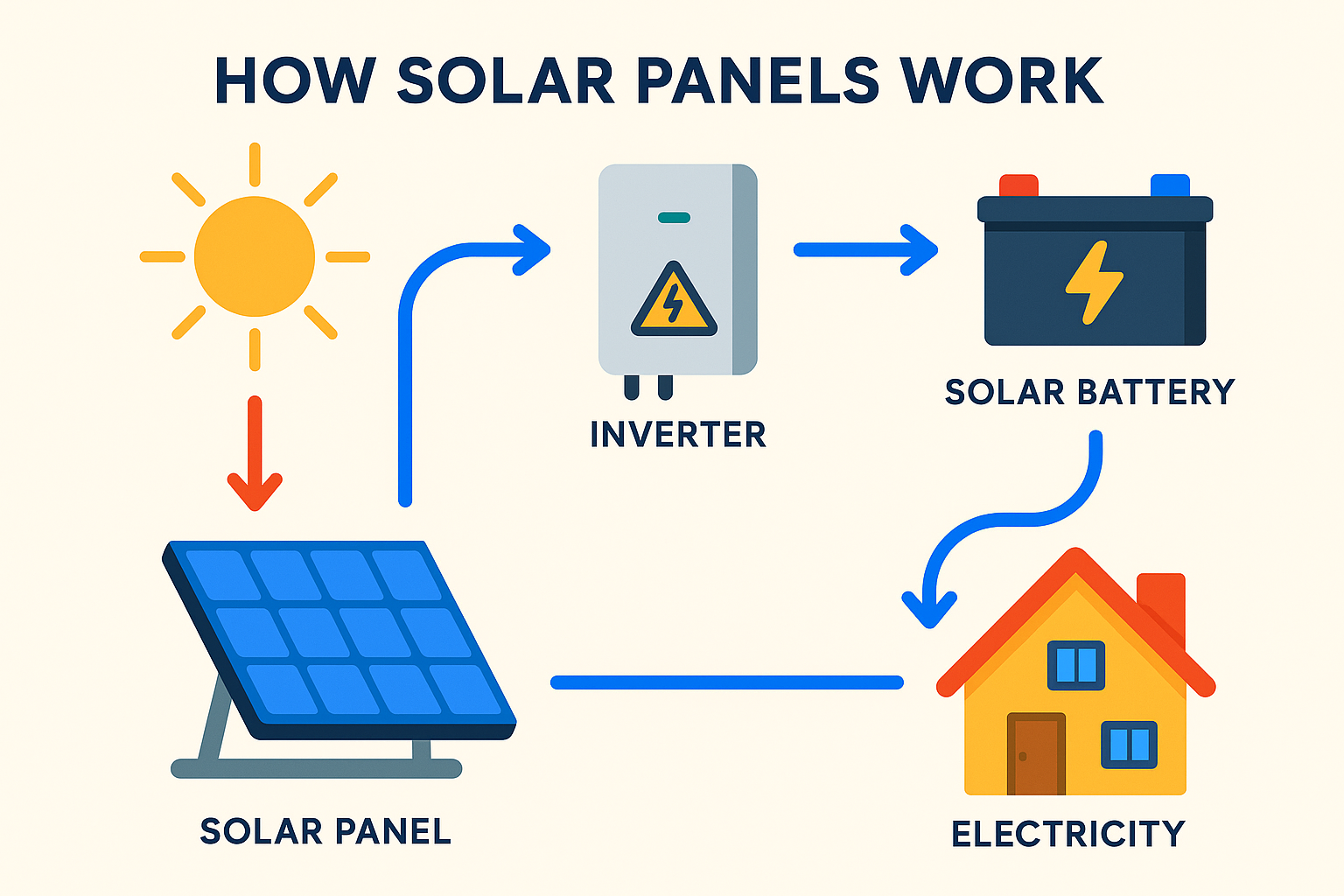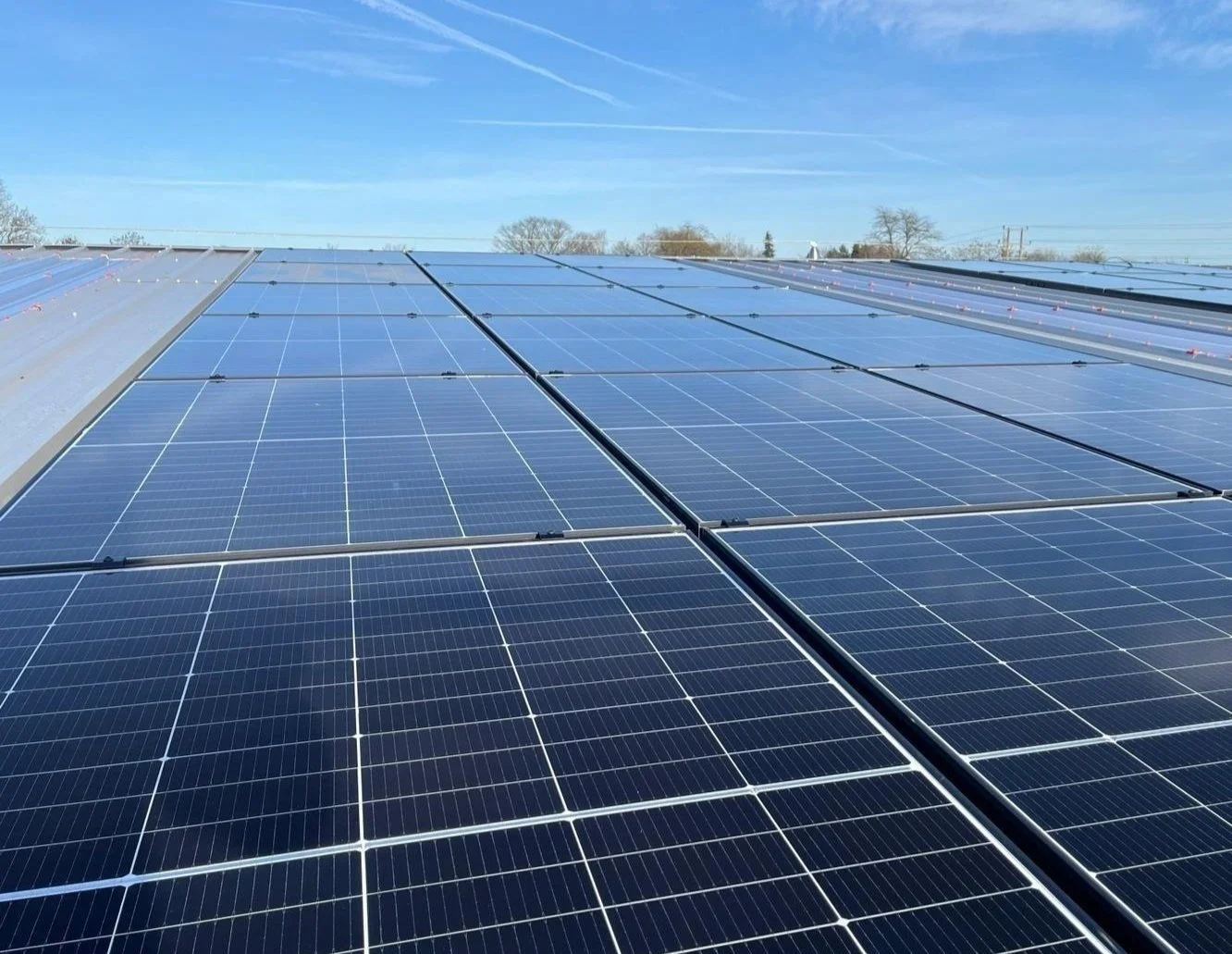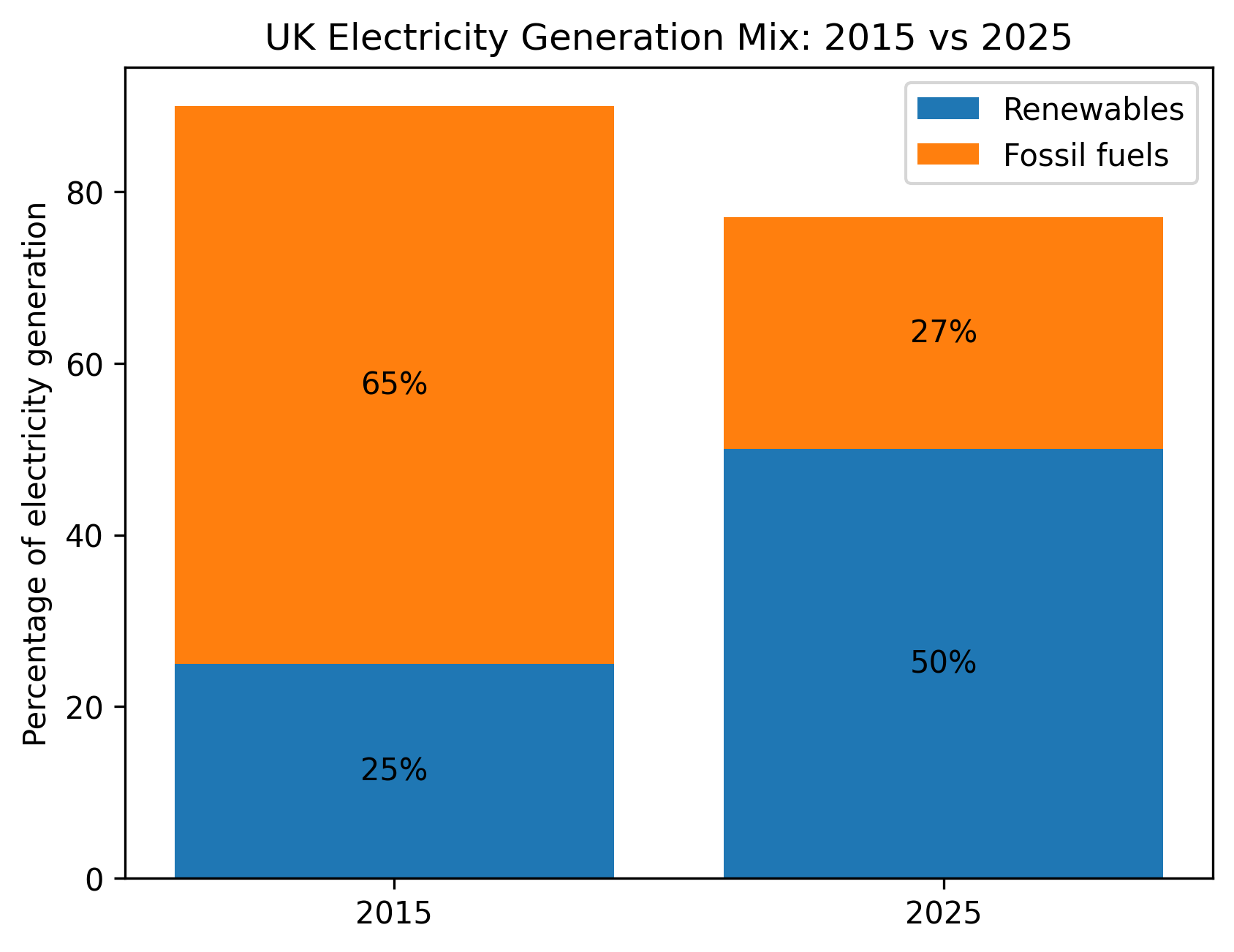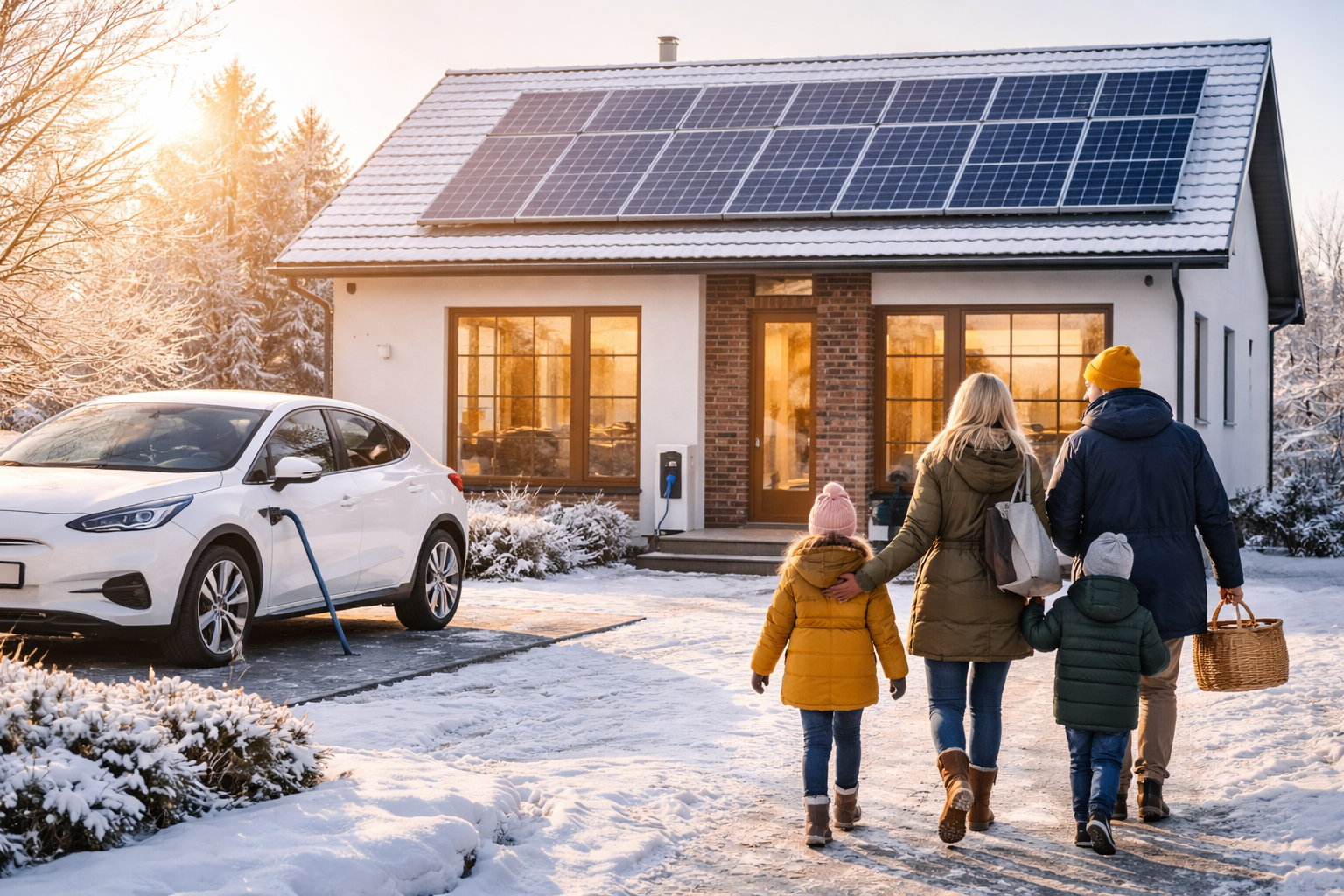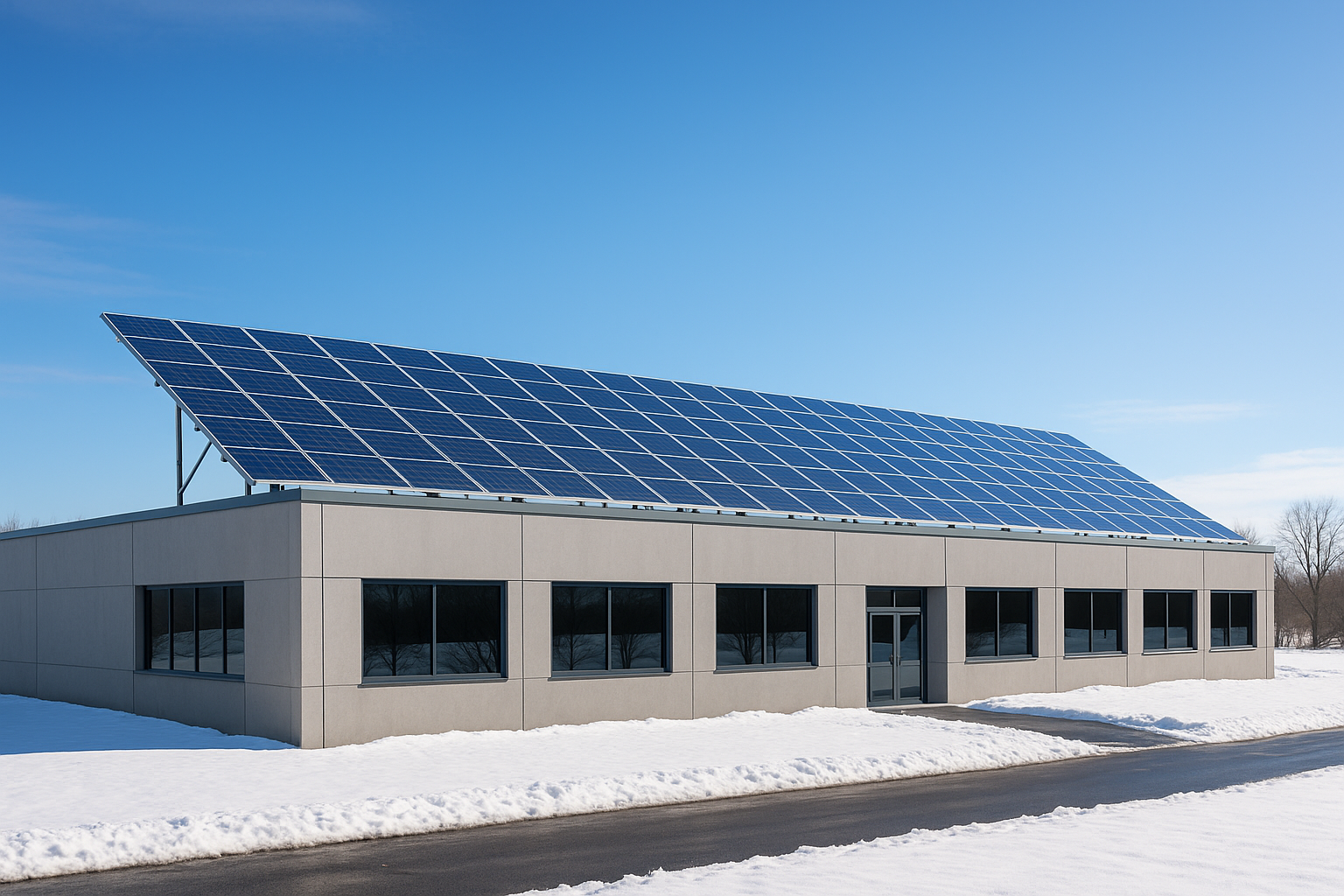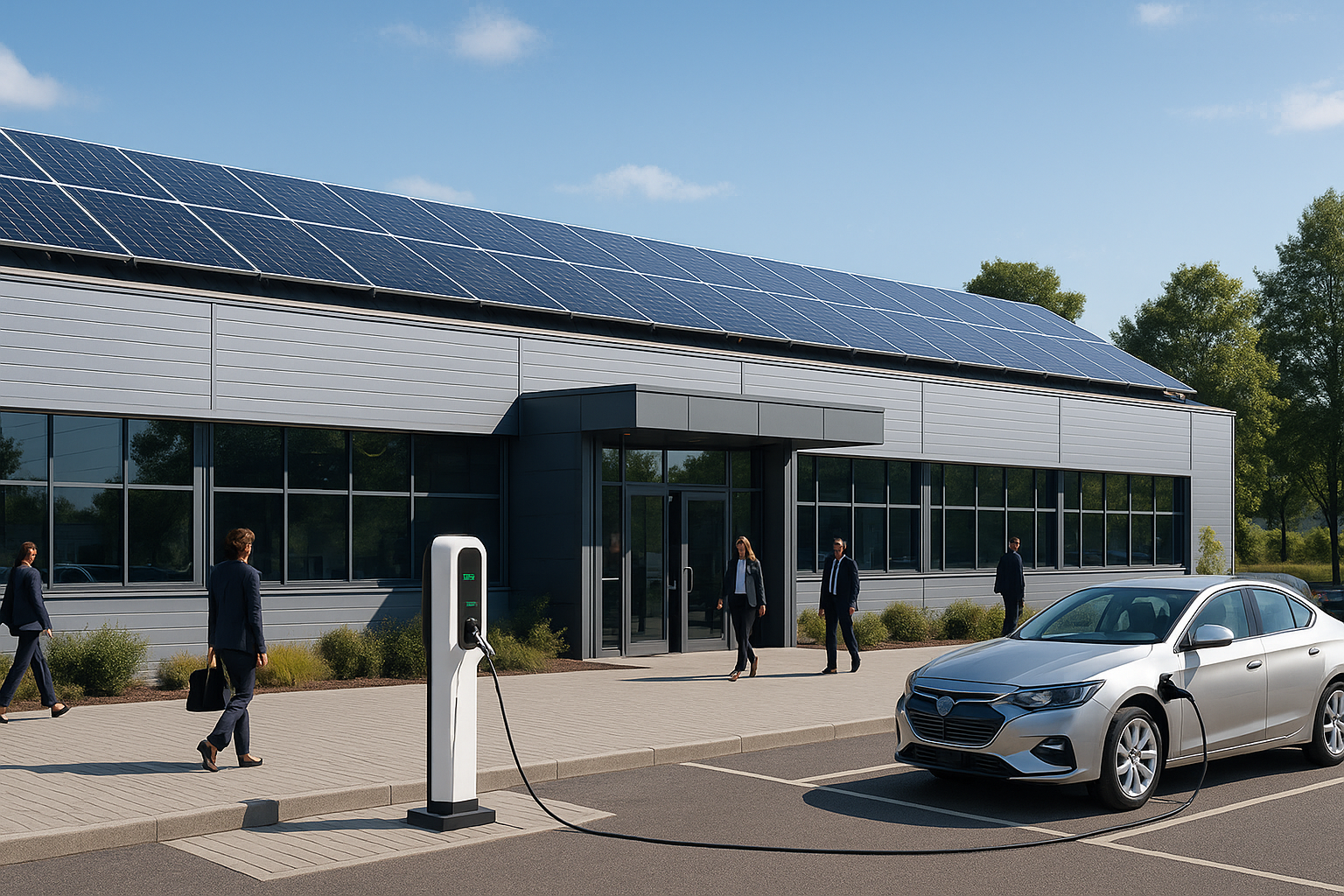Introduction
Solar panels are transforming how homes and businesses across the UK generate energy — offering a cleaner, greener, and more affordable way to power everyday life. But how exactly do solar panels work?
In this guide, we’ll explain the science behind solar power, step by step — and show how it connects to UKGEI’s renewable energy services.
1. What Are Solar Panels?
Solar panels, also known as photovoltaic (PV) panels, are devices that convert sunlight directly into electricity. Each panel is made up of multiple solar cells, typically using silicon — a semiconductor that reacts when hit by sunlight.
When sunlight hits these cells, it frees electrons inside the silicon, generating direct current (DC) electricity.
2. Converting DC to AC: The Inverter’s Role
Homes and businesses use alternating current (AC) electricity, not DC. That’s why every solar system includes an inverter, which converts the DC electricity your panels generate into usable AC power for your property.
This step makes solar energy compatible with your existing electrical systems and the national grid.
3. Storing Solar Power with Batteries
If you want to make the most of your energy — especially on cloudy days or at night — a solar battery can store the excess electricity your panels produce.
Battery storage means you rely less on the grid, reduce bills, and keep your energy clean all day long.
4. Evolving Solar Technology and Integrated Solutions
The solar industry is advancing rapidly, with new products and integrated systems emerging all the time. Many modern solar batteries now include built-in inverters or come as all-in-one hybrid units, simplifying installation and improving efficiency. There’s also a growing range of smart energy management systems that automatically optimise how and when your stored electricity is used. At UKGEI, we continuously review the latest technologies and manufacturer offerings to ensure every system we design delivers the best performance, safety, and long-term value for our customers.
5. Monitoring and Maintenance
Modern solar systems come with smart monitoring apps so you can track energy production in real time. UKGEI’s installations also include ongoing support and maintenance — ensuring your panels perform efficiently for years.
⚡ The Benefits of Solar Panels
Lower energy bills and potential income from exporting excess electricity
Reduced carbon footprint — helping meet UK net-zero goals
Energy independence — less reliance on the grid
Increased property value and appeal to eco-conscious buyers
Why Choose UKGEI?
At UKGEI, we specialise in complete solar energy solutions — from design and installation to maintenance and energy management. Our expert team works with homeowners and businesses across the UK to create efficient, cost-effective renewable systems.
👉 Learn more about our Solar Energy Services or Request a Free Quote today.
Frequently Asked Questions About Solar Panels
Do solar panels work in the UK’s cloudy weather?
Yes—solar panels generate electricity from daylight, not just direct sunshine. While output is lower on overcast days, the UK still receives enough sunlight across the year for solar to be worthwhile for many homes and businesses.
How long do solar panels last?
Most modern solar panels are designed to last 25–30 years or more. Output gradually reduces over time, but quality panels paired with a professional installation will deliver reliable performance for decades.
Do solar panels need a lot of maintenance?
Maintenance is minimal. Keeping panels clean and free from debris is usually sufficient. For peace of mind, consider a maintenance plan to check performance and system health.
Can I store solar energy for use at night?
Yes. Adding a battery storage system lets you store excess daytime generation and use it later, reducing reliance on the grid and improving self-consumption.
How much money can I save with solar panels?
Savings vary by usage, system size, roof orientation, and location. Many UK households save hundreds of pounds per year, and savings can increase when combined with battery storage and smart energy management.
Will installing solar panels increase my property’s value?
Solar can make properties more attractive to buyers by lowering running costs and improving energy efficiency, which may increase perceived value.
Can solar panels work during power cuts?
Standard grid-tied systems shut down during outages for safety. If you have battery storage with a backup or islanding feature, essential circuits can remain powered during a cut.
Are there government incentives for solar energy?
Yes. The Smart Export Guarantee (SEG) pays you for eligible surplus electricity exported back to the grid. Check current supplier tariffs and eligibility criteria before you install.
How long does installation take?
Most residential systems are installed within 1–3 days, depending on roof size, access, and system complexity. Larger or more complex projects may take longer.
How do I know if my home is suitable for solar panels?
South-facing roofs with minimal shading deliver the best results, but many orientations can work. A site survey will assess roof condition, shading, and electrical setup to recommend the right system.


